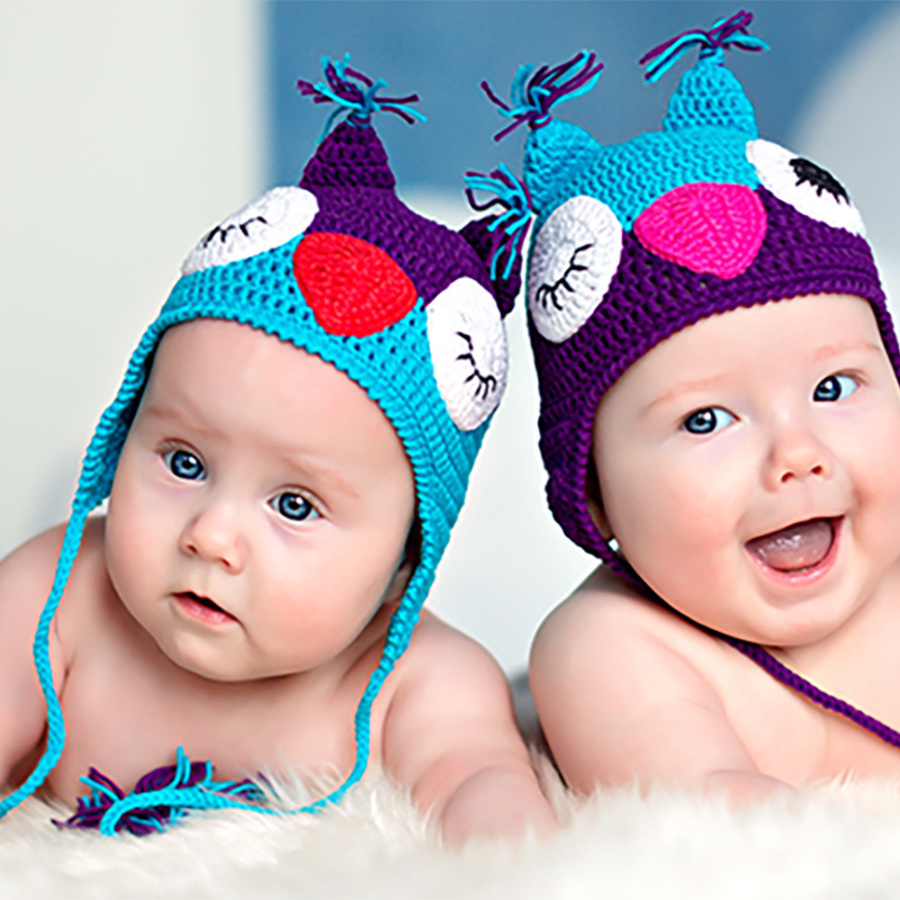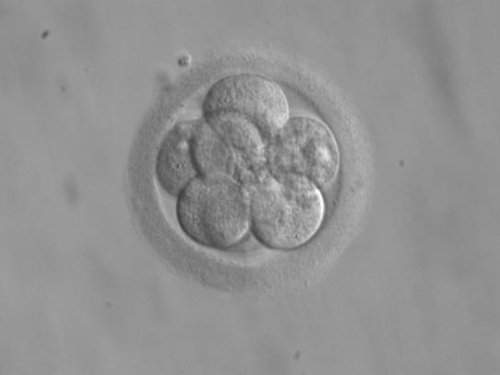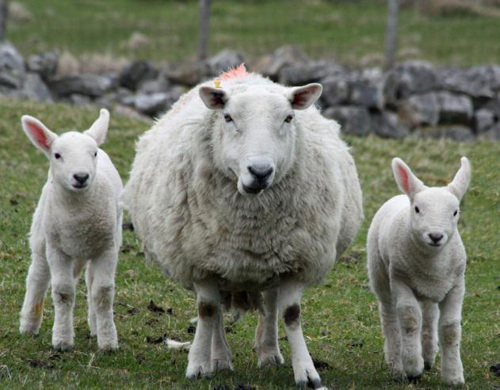
Does genetics affect the chance of having twins?
June 25, 2014

- Related Topics:
- Twins,
- Developmental biology,
- Reproduction,
- Common questions,
- Complex traits
A curious adult asks:
“My son is going to have twins. I’m a fraternal twin and I have another brother and sister that are fraternal twins. My husband has on his side of the family twins (fraternal) and triplets – boys. Is our son having twins because of our background? Does it have to do with our genetics?”
That is a very interesting question! And one that many people wonder about.
Twin genetics depend on what kind of twins we are talking about. Having identical twins is not genetic. On the other hand, fraternal twins can run in families.
Genetics can definitely play a role in having fraternal twins. For example, a woman that has a sibling that is a fraternal twin is 2.5 times more likely to have twins than average!
However, for a given pregnancy, only the mother’s genetics matter. Fraternal twins happen when two eggs are simultaneously fertilized instead of just one. A father’s genes can’t make a woman release two eggs.
It sounds like fraternal twins do indeed run in your family! But, since your son is the father, his genes are on the wrong side of the family tree. So, your family history likely didn’t play a role in his wife’s twin pregnancy.
The answer would be different if you were asking about a daughter. Also, although your son’s family history of twins can’t increase his wife’s chance of having twins, he can pass those genes down to your granddaughter. With your strong family history of fraternal twins, this just might increase the chances of your granddaughter having twins!
But, your daughter-in-law is not necessarily having twins because of her genetics. Other things like environment, nutrition, age, and weight have also been linked to having twins as well. And there is always simple chance…every woman has a chance at having fraternal twins. It is just that some women have a higher or lower chance.

Huh? Help Me Understand the Genetics!
Wait a minute. One type of twins has a genetic basis and the other does not? And, only the mom’s genetics matter? How is that possible?
Don’t worry. It makes a lot of sense once we break down the biology.
The important difference between identical and fraternal twins is the number of fertilized eggs involved. Identical twins come from a single fertilized egg. Fraternal twins come from two different ones.
Identical twins happen when a single embryo splits in two soon after fertilization. This is why identical twins have identical DNA. They came from the same fertilized egg.
Since embryo splitting is a random event that happens by chance, it doesn’t run in families. Genes are not involved. The same is not true for fraternal twins.
Fraternal twins happen when two independent eggs are each fertilized by different sperm. This is why the DNA of fraternal twins is different. In fact, the DNA of fraternal twins is no more similar than the DNA of any other sibling pair.

Usually, a woman only releases a single egg at a time. Fraternal twins can only happen if a mother releases two eggs in one cycle. This is called hyperovulation.
Unlike embryo splitting, ovulation is a normal biological process that is controlled by our genes. And, different women can have different versions of these ovulation genes.
Some women have versions (called alleles) of these genes that make them more likely to hyperovulate. This means there is a higher chance that two eggs could get fertilized at once, leading to fraternal twins.
The gene versions that increase the chance of hyperovulation can be passed down from parent to child. This is why fraternal twins run in families.
However, only women ovulate. So, the mother’s genes control this and the fathers don’t.
This is why having a background of twins in the family matters only if it is on the mother’s side. And why your son’s family genetics did not play a role in his twins.
Some older Ask-a-Geneticist posts talk about a lot of this stuff, but your question got me thinking. Our last answer on twins was done so long ago. Has recent research discovered anything new on this fascinating topic? They have indeed… at least if you are a sheep!
Counting Sheep can Teach us about Twins
Scientists often turn to animals when they want to study a biological process. Some of the newest information we have about twin genetics comes from studying sheep.
Sheep were chosen because, like people, they typically give birth to a single lamb. However, they can sometimes have twins and triplets.

Different breeds of sheep naturally have higher or lower twin rates. These different breeds have different versions (called alleles) of some of their genes. Specific alleles can make certain breeds more likely to have twins.
We can compare the genes between these different breeds to try to find the genes controlling twinning. And, this is just what scientists did.
A thorough search for genes controlling twinning in sheep identified several interesting ones. The breeds with higher twin rates had different alleles of these genes!
Three key sheep genes identified were named BMP15, GDF9, and BMPR1B. The specific gene names are not really important. Just know that all of these genes are involved in controlling ovulation. Which makes sense!
Remember, hyper-ovulation increases the chance of having fraternal twins. The sheep breeds with higher than average twin rates had versions of the genes that increase ovulation.
Sheep are a great tool to help us study twin genetics. The tricky part is connecting these findings to people.
It is harder to study humans. Scientists have tried to find links between the genes identified in sheep and human twin genetics. So far they’ve found that some match up and some don’t. This, in and of itself, is interesting!
Another gene called follicle-stimulating hormone, or FSH for short, has also been linked to twins in humans. Like the other three genes identified, this FSH is also involved in promoting ovulation, and mothers of fraternal twins often have high levels of it.
It seems that twin genetics is more complicated in humans than in sheep. More genes are likely involved. But, each new bit of information about the genes involved adds another puzzle piece to the complete genetic picture.
Maybe someday we will know all the genes that cause fraternal twins in people. But for now, you can just tell your son that his genetics likely didn’t cause his twins. Scientists are still trying to figure out which, if any, genes on his wife’s side could possibly be the culprits!

Author: Anja Scholze
When this answer was published in 2016, Anja was a Ph.D. candidate in the Department of Developmental Biology, studying developmental neurobiology and glia in Ben Barres’s laboratory. She wrote this answer while participating in the Stanford at The Tech program.
 Skip Navigation
Skip Navigation
